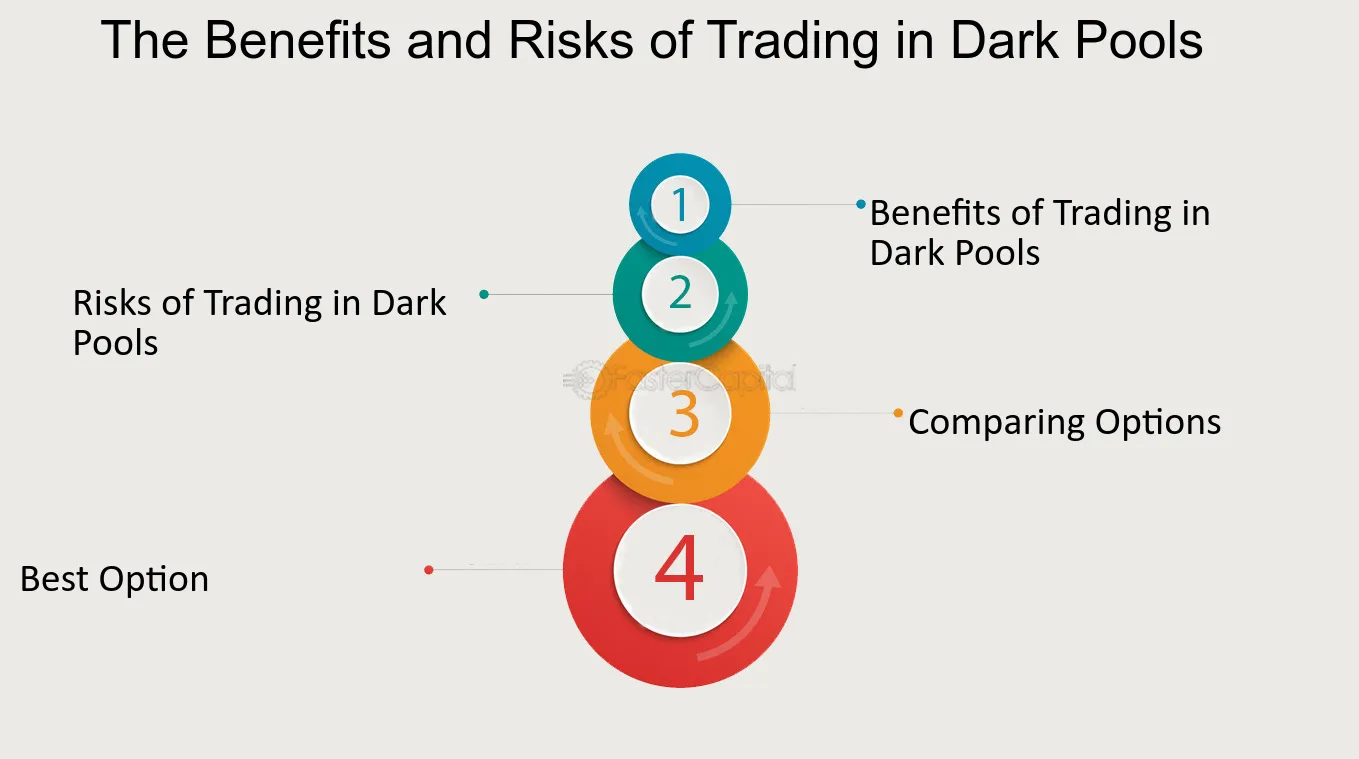Did you know that some traders believe dark pools are where Wall Street hides its secrets like a magician concealing a rabbit? In the world of finance, dark pools and proprietary trading firms are key players but come with a maze of regulatory considerations. This article dives into the nature of dark pools, highlighting how they differ from traditional exchanges and the regulations that govern them. We’ll explore the legal landscape across countries, the risks associated with dark pool trading, and the operations of prop firms. Additionally, we’ll address transparency issues, market fairness, and best practices for navigating compliance. As traders and investors, understanding these elements is crucial, and DayTradingBusiness is here to guide you through the complexities of trading in dark pools and the implications for prop trading strategies.
What are dark pools in stock trading?
Dark pools are private stock trading venues where large orders are executed away from public exchanges, allowing traders to buy or sell big blocks without revealing their intentions and avoiding market impact. They are regulated but lack the transparency of public markets, raising concerns about fairness and price discovery.
How do dark pools differ from traditional exchanges?
Dark pools are private trading venues where large orders are executed anonymously, avoiding public market impact. Traditional exchanges are transparent, displaying order books and prices openly to all participants. Dark pools limit pre-trade transparency, reducing market impact for big trades, while traditional exchanges provide full visibility and real-time price discovery. Regulatory oversight differs: dark pools face stricter rules on transparency and reporting, but still operate outside public view, unlike traditional exchanges that are heavily regulated and transparent.
What regulations govern dark pool trading?
Dark pool trading is primarily regulated by the SEC under Regulation ATS (Alternative Trading Systems) and Regulation NMS. These rules require dark pools to register as broker-dealers or ATSs, disclose their order execution practices, and comply with transparency and fair trading standards. FINRA also oversees dark pool operations, ensuring proper conduct and reporting. Some jurisdictions may have additional rules to prevent market manipulation and ensure investor protection.
Are dark pools legal in all countries?
No, dark pools are not legal in all countries. Their legality depends on each country's financial regulations; some ban or restrict dark pool trading, while others permit it under specific rules.
What are the risks of trading in dark pools?

Trading in dark pools risks less transparency, making it harder to see market activity, which can lead to execution at unfavorable prices. It increases the chance of information asymmetry, where big players might gain an advantage over smaller traders. Dark pools can hide order sizes, potentially manipulating perceptions of supply and demand. Regulatory oversight is limited, raising the chance of unfair practices or violations. Also, sudden regulatory changes can impact access or impose restrictions, risking liquidity and trading strategies.
How do prop firms operate in the trading industry?
Prop firms fund traders with their own capital, sharing profits and losses. They operate by providing traders access to large, often exclusive, trading accounts. Traders execute strategies, sometimes in dark pools or other private venues, while the firm manages risk and compliance. Regulatory oversight varies; some prop firms are registered and follow strict rules, while others operate in less regulated environments. They often focus on proprietary trading strategies, seeking to maximize returns with minimal external oversight.
What regulations apply to proprietary trading firms?
Proprietary trading firms are primarily regulated by the SEC and FINRA in the U.S. They must register as broker-dealers, follow SEC Rule 15c3-5 (risk management), and comply with FINRA rules on trading practices. If they trade in dark pools, they must adhere to SEC Regulation ATS, which requires registration and reporting of dark pool activity. They also need to maintain proper risk controls, conduct regular audits, and follow anti-fraud laws to prevent manipulative practices.
Can retail traders access dark pools?
Retail traders generally cannot access dark pools directly because these private trading venues are limited to institutional investors and approved market participants.
What compliance requirements do prop firms face?

Prop firms must comply with financial regulations like SEC or CFTC rules, anti-money laundering laws, and know-your-customer (KYC) requirements. They need to adhere to trading restrictions, reporting standards, and ensure proper risk management. Registration with relevant authorities is often necessary, and they must follow rules on dark pool trading transparency. Additionally, they must implement robust compliance programs to prevent market abuse and ensure ethical trading practices.
How do regulators monitor dark pool activity?
Regulators monitor dark pool activity through real-time trade reporting, analyzing order flow, and surveillance tools that detect suspicious patterns. They review data from FINRA’s Trade Reporting and Compliance Engine (TRACE) and SEC’s Regulation ATS filings. Surveillance systems flag unusual volume spikes, price movements, or order mismatches. Regulators also use advanced analytics and machine learning to identify potential manipulation or abuse in dark pools.
Learn about How to Detect Dark Pool Activity?
What are the transparency issues with dark pools?
Dark pools lack transparency because they hide trade details, making it hard for the market to see order flow and price discovery. This opacity can lead to information asymmetry, giving large traders an unfair advantage. Regulators worry dark pools can obscure market manipulation, insider trading, and price manipulation. Limited oversight increases the risk of unfair practices and diminishes market confidence.
How do dark pools impact market fairness?
Dark pools reduce market transparency, giving institutional traders an unfair advantage by hiding large orders from the public. This can lead to less price discovery and create an uneven playing field, making it harder for retail investors to access fair pricing. Regulators worry dark pools can facilitate information asymmetry, potentially distorting market fairness and increasing systemic risk.
Learn about How Do Dark Pools Impact Market Fairness?
What are the best practices for legal dark pool trading?
Follow strict compliance with SEC and FINRA rules, disclose dark pool activity when required, and ensure transparency with regulators. Use robust trade surveillance to detect manipulative practices, and implement strict internal controls. Maintain clear records of all trades, avoid market manipulation, and adhere to best execution standards. Regularly review and update policies to align with evolving regulations. Engage with regulators proactively and avoid deceptive practices like layering or quote stuffing.
How can traders ensure compliance with dark pool rules?
Traders ensure compliance with dark pool rules by thoroughly understanding and following SEC regulations and exchange-specific guidelines. They use vetted trading algorithms that adhere to order size limits and reporting requirements. Regularly reviewing dark pool activity and maintaining detailed trade records helps detect potential violations. Staying updated on rule changes and working with compliance officers or legal advisors guarantees adherence. Avoiding manipulative tactics like spoofing or quote stuffing is essential for staying within legal boundaries.
Learn about How Can Day Traders Benefit from Dark Pool Data?
What are the future regulatory trends for dark pools?
Future regulatory trends for dark pools include increased transparency requirements, stricter reporting standards, and enhanced oversight to prevent market manipulation. Regulators may impose limits on order sizes and trading volumes in dark pools, and push for real-time disclosure of large trades. Expect more rigorous oversight of proprietary trading firms operating within dark pools to curb conflicts of interest. Overall, expect a push towards making dark pool activity more visible and accountable to protect market integrity.
How do regulatory considerations affect prop trading strategies?

Regulatory considerations limit leverage, impose reporting requirements, and restrict certain trading practices in dark pools and prop trading. Traders must comply with rules like FINRA or SEC regulations, which can restrict high-risk strategies or require transparency. These rules can increase costs, reduce flexibility, and force firms to adjust strategies to avoid penalties. Overall, regulations shape how prop firms and dark pool traders execute trades, prioritizing compliance over aggressive tactics.
Learn about How Do Prop Firms Affect Day Trading Strategies?
Conclusion about Regulatory Considerations for Trading in Dark Pools and With Prop Firms
In summary, understanding the regulatory landscape surrounding dark pools and proprietary trading firms is crucial for traders looking to navigate this complex environment. Compliance with regulations not only ensures legality but also promotes market fairness and transparency. By staying informed about the evolving rules and best practices, traders can mitigate risks and enhance their strategies. For more insights and guidance, rely on DayTradingBusiness to help you make informed trading decisions.